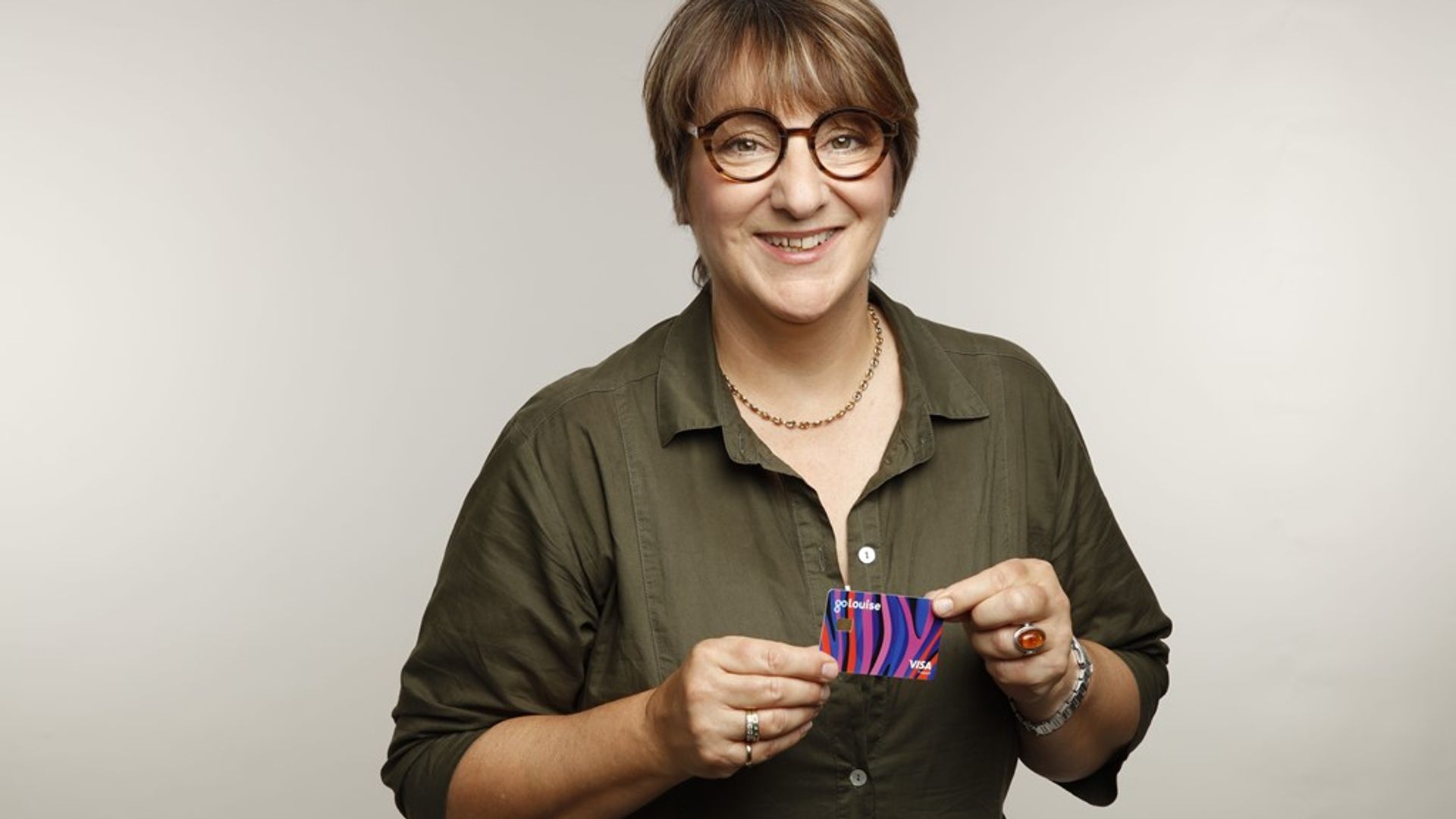For many women, having kids pauses or unfairly disrupts their careers. For Louise Hill, the opposite happened.
Growing up in Lowestoft on the east coast of England, she had a childhood filled with days on the beach, kayaking and exploring old boats. But her own kids arrived into a very different world – one of apps and downloads and online marketplaces.
It wasn’t long before she started to think about financial education and the importance of practical money skills.
Back when her two children had iPods and would download music from iTunes, she would print off an invoice every time they landed a bill in her inbox. The invoice would then be stuck on the fridge.
When they came to her at the weekend asking for pocket money, Louise would point to the fridge and deduct the amount they had already spent from their allowance.
“I was trying to make them understand that money has to come from somewhere, and it really doesn’t grow on trees,” she told the Money team.
“I could go through the process of saying, well you’d normally get £5 but here’s what you’ve spent this week, so you only get £1.20.”
How the idea for GoHenry came about
During school pick-ups and kids’ football games, Louise heard other parents complaining about their children’s spending habits.
One parent told a story about her daughter spending £200 on an online My Little Pony game. Another didn’t know what to do when a battered-up car arrived at her driveway on a flatbed truck after her son spent £600 on eBay on what he thought was a toy.
“Everybody had a story. It was amazing to realise we were all having the same problems and kids were starting to have access through their parents to the digital world, but there was nothing in the market to help parents teach them to access it in a safe way,” Louise said.
“We wanted to create a service that would empower them with freedom, confidence, to use and understand money but in a safe environment.”
Read more:
Disneyland performers form union
Dr Martens profits plummet
Royal Mail owner agrees to £5.3bn takeover by West Ham co-owner
The idea of GoHenry, a prepaid debit card and learning app, was born.
With a big mortgage, little money to set up a business and two kids to look after following a divorce, Louise said she and her co-founders (who quickly left the company) “grafted”.
“I could have got a fairly safe, well-paid corporate job – jumping off the edge of a cliff into the uncertainty of starting a business was quite a leap,” she said.
“But the idea was too good, frankly.
“It took a little while to work out the right tool to use, so we worked nights, we worked weekends, we worked holidays, all because we really, really wanted to bring this to market.”
In an initial round of seed funding, she raised more than £650,000, which was followed by several successful crowdfunding campaigns.
The challenges
Her company eventually launched in 2012 and while it’s now a huge success, delivering a service to more than two million people across France, Spain, Italy, the US and the UK, Louise said it hasn’t been without its challenges.
The first one was the name. When it first came to market, the business was called PKTMNY (pronounced pocket money), but the name was changed about 18 months later after she realised it was “stupid”.
“Nobody could say it and nobody could spell it, it was a really silly idea,” she added.
The business got the name GoHenry after its very first customer – an 11-year-old boy named Henry from Bristol.
Another challenge was its scale of growth – GoHenry grew in a big way, very quickly, which meant constant changes needed to be made to the company structure.
“About six or seven years ago, we were growing incredibly quickly… I know this sounds ridiculous but almost every six months you’d have to step back and look at what we needed,” she said.
This was an issue Louise had faced and failed to overcome years before in a previous business – an ecommerce company called Manners, which she was forced to sell after running out of cash to sustain its growth.
“We failed to think about how we would scale it,” she said.
“We couldn’t grow it any more because we didn’t have enough cash in the company. At the time, I was really cross with myself for not having thought about that.”
‘I was becoming a roadblock’
In around 2017-18, Louise realised another issue with GoHenry: herself.
“I was becoming a roadblock. I was working flat out and so much of the information about why we did things the way we did them was in my head or in my laptop files,” she explained.
“That kind of snuck up on me and I was fundamentally creating a risk for the business and stopping us growing as quickly as we could.”
She started a campaign across the company, encouraging staff to raise “single points of failure” to see where the problems were.
“I appeared in there an awful lot,” she said.
“So, yeah, that’s a top tip from me – don’t let that sneak up on you. Plan ahead.”
What’s been the key to her success?
Now running for more than 12 years, GoHenry has continued to expand and innovate.
Louise said keeping her mission of “making every kid smart with money” at the forefront had been “fundamental”.
“That is our sole focus,” she added.
“This isn’t an add-on product to another business – everyone who joins GoHenry is here for one reason and that’s to serve Gen Z and now Generation Alpha’s money needs and I think that makes a big difference.”
Louise’s advice for others
“Who am I to give advice?” was her initial response when asked this question.
She said she wanted more young girls and women see images of people who look like them succeeding.
“The more that becomes the norm, the more people will think they can do it too,” she said.
“I’ve been asked many times what’s the difference between a founder, an entrepreneur and a non-entrepreneur, and it has to come down to risk appetite.
“I’ve thought about all sorts of different mindsets, different backgrounds, different abilities with, I don’t know, spreadsheets or contacts… But at some point it comes down to being confident enough.”
So practically, she said, women looking to set up a business should start by finding support groups.
“There are loads out there. They can be hugely helpful because founding a business can be lonely and a tough move to make. Nobody pretends that it’s easy,” she said.
Another tip she had was to plan for scale “from day one”, thinking about the partners you work with, the suppliers, how much money you need to bring in and how often you might need to “go out and get more money”.
But the most important lesson, she says, is was to hire people you know are better than you.
“It’s scary to hire people that you know are much better than you but if you can do that and then give them the space they need to do what they can really well, you’ll have a much higher chance of a successful business,” she said.
“What’s the worst that can happen if you fail? Pick yourself up, dust yourself off, start again.”






